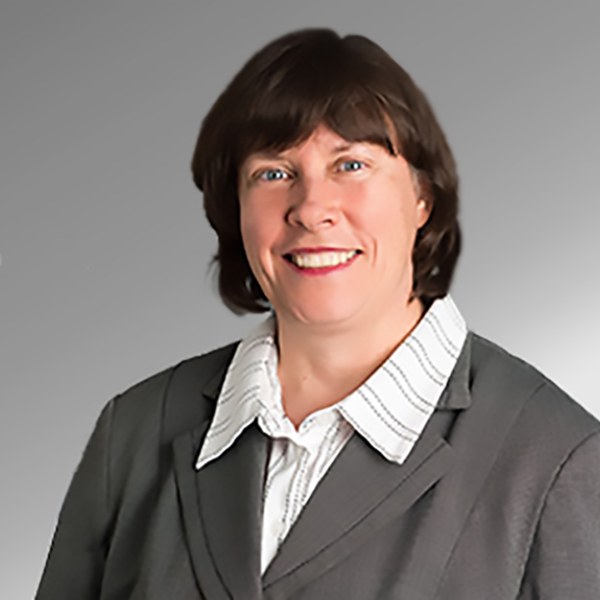Fresh out of McGill with a degree in psychology, Myriam Lecousy has big plans for Nightline, the student peer-to-peer telephone support service she founded.
“Now the goal is really to bring Nightline to every single university across Canada so that students have this service … (and) won’t have their education compromised by emotional difficulties,” she says.
Lecousy took part in the McGill X-1 Accelerator this summer, an intensive program designed to help McGill startups get off the ground – and raved about the experience.
Not only did they learn how to build each aspect of their startup to make it work, she says, “but we were also challenged at every single step … that really helped us develop the product we have now.”
Alumni play key mentoring roles in the McGill X-1 Accelerator and other startup programs run by the McGill Dobson Centre for Entrepreneurship. They offer real-world advice drawn from their own business experiences to budding entrepreneurs at McGill.
“The mentors are amazing,” says Myriam Fournier-Tombs, co-founder and CEO of Haven Hub, a healthcare startup that proposes “seamless rehabilitation” (care coordination and therapies) for seniors.
Fournier-Tombs, who obtained her International Masters for Health Leadership from McGill in 2017, calls the X-1 Accelerator “the hardest thing I’ve done so far, which is really good because I love being challenged.”
Guest speakers at this summer’s program included a memorable session with Boston-area entrepreneur Rubin Gruber, BSc’65, DSc’14, who shared his experiences launching companies, listened to pitches from the startup teams and fielded their questions.
“Alumni mentors play key roles across all our entrepreneurship programs at McGill,” says Renjie Butalid, Associate Director of the Dobson Centre. “Having a trusted mentor means that our founders know that someone has their back. Mentors are part of the essential support system that can mean the difference between a company succeeding or failing.”
Roberto Bellini, BSc’02, president and CEO of biopharmaceutical Bellus Health, based in Laval, called his experience this summer as an X-1 mentor rewarding.
As a McGill student, Bellini knew he wanted to combine business and science. But there wasn’t this whole startup ecosystem back then – the “let’s start companies when you’re in university” culture, he says.
“That’s why I find it so amazing when I go see the projects now – I see these incredibly young people pitching business ideas and pitching companies,” says Bellini, an X-1 Advisory Board member. “And for me it’s so incredibly fascinating and awesome to be empowering young people to do that so early in their careers.”
Many times by asking the right questions, Bellini says, “you get them to think through things a lot further, and to prepare them for the questions that they’re going to get when they go out and see investors in the real world.”
McGill’s far-flung alumni community will soon get a chance to learn about the business ideas percolating on campus. McGill Demo Days showcases the most promising startups from the X-1 Accelerator and the Dobson Cup, McGill’s flagship annual startup competition.
Demo Days kick off in Montreal on Sept. 13, followed by stops in San Francisco, Boston, Toronto and New York.
While visiting these cities on the Demo Days tour, the Dobson Centre organizes a series of meetings for the startup teams with venture capital firms, angel investors, and McGill alumni entrepreneurs. These interactions enable McGill startup founders to see opportunities from a global perspective.
Boston entrepreneur Steve Kokinos, BA’98, co-founder and executive chairman of Fuze, is hosting Boston Demo Day at the company’s headquarters. Fuze employs about 700 employees around the world and has made Forbes’s annual Cloud 100 list of the best private cloud companies since the rankings were launched in 2016.
His involvement is partly a way to give back, Kokinos says, “but also, I think it’s important to sort of help encourage people to start companies and not make it something that’s seen as unusual.”
As for what advice he tries to impart to young entrepreneurs, Kokinos says it’s an opportunity to give some insight into what it’s actually like to start a business and some of the things you go through.
“One of the things I’ve found is over time when you’re successful that there’s sort of a lens that people look through. And I think it’s not always that appreciated the amount of work that goes into building a successful business.”
In addition to seeking out alumni mentors, the Dobson Centre taps into Montreal’s emerging startup community. “Montreal’s startup ecosystem is emerging with such velocity that the rest of world has taken notice of it. We only have to look towards Montreal’s dominance in artificial intelligence research, for example, to know that this city and the province of Quebec are on the map,” Butalid says.
During the recent X-1 program, the McGill Alumni Association arranged for McGill students and recent grads to attend the internationally recognized Startupfest conference in Montreal and meet with several McGill-affiliated presenters, including Daniel Cohen, BA&Sc’16, co-founder and CEO of InVivo AI. The startup, which uses artificial intelligence to streamline drug development, won the “Best of the Fest” $100,000 prize at Startupfest and earned a prize at the 2018 Dobson Cup in the Health Sciences Track.
The McGill contingent also got face time with Dax Dasilva, the founder and CEO of Montreal-based software company Lightspeed, which has offices in Ottawa, the U.S, Europe and Australia. Dasilva visited the X-1 Accelerator in 2016 where he watched teams pitch and offered feedback.
The Dobson Centre also offers the McGill Lean Startup Program for earlier stage teams with a startup idea.
The Dobson Centre’s startup programs are open to current students, recent graduates, faculty members and post-doctoral researchers at McGill. Its mission is to find, teach and develop world-class entrepreneurs at McGill.
“We’re focused on building founders and great teams,” Butalid notes. “Our goal at the Dobson Centre is to provide a framework, to provide an environment that allows them to learn how to become great entrepreneurs and build great companies.”
